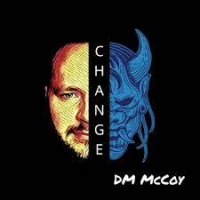Latest Sheet Music
Jule Styne
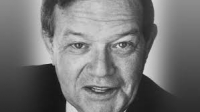
Jule Styne (/ˈdʒuːli staɪn/; December 31, 1905 – September 20, 1994) was a British-American song writer and composer known for a series of Broadway musicals, which include several famous and frequently revived shows.
Chiquinha Gonzaga
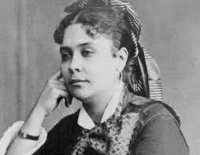
Francisca Edwiges Neves Gonzaga, better known as Chiquinha Gonzaga (Portuguese pronunciation: ; October 17, 1847 – February 28, 1935) was a Brazilian composer, pianist and the first woman conductor in Brazil.[Chiquinha Gonzaga was the first pianist of "choro" and author of the first carnival march, "Ó Abre Alas" (1899). Her plays and operettas, such as Forrobodó and Jurití, were a great success with the public because they used elements of Brazilian popular culture of the time.
Traditional

Robert Kerr
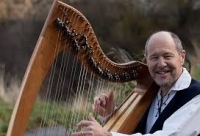
Happy to have escaped from his former career as a librarian, Robert has been freelancing as a musician
since 1989. He leads Sounds Braw ceilidh band from the piano, and pays the clarsach (Scottish small harp)
for weddings and other functions. The tin whistle, flute and accordion come in useful for less formal
occasions, including his solo concerts for the Council for Music in Hospitals.
Robert is also a baritone singer, and has sung principal roles with both Dunfermline and Kirkcaldy Gilbert
and Sullivan Societies, in addition to being a member of Edinburgh Grand Opera chorus in several
productions.
since 1989. He leads Sounds Braw ceilidh band from the piano, and pays the clarsach (Scottish small harp)
for weddings and other functions. The tin whistle, flute and accordion come in useful for less formal
occasions, including his solo concerts for the Council for Music in Hospitals.
Robert is also a baritone singer, and has sung principal roles with both Dunfermline and Kirkcaldy Gilbert
and Sullivan Societies, in addition to being a member of Edinburgh Grand Opera chorus in several
productions.
Ed Huckeby
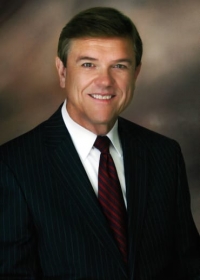
Dr. Ed Huckeby, (b. 1948) is an American composer, musician, conductor, and educator.Huckeby's career in music began in 1968, which marked the start of his eight years teaching music to students in public schools throughout Oklahoma. In 1976, Huckeby was appointed a professor at Northwestern Oklahoma State University, where he would later become music department chair, director of educational outreach, and, in 1990, dean of the graduate school. In 1998–99, Huckeby served as the executive director of Tulsa Ballet (Tulsa, Oklahoma) prior to becoming the associate vice president for academic affairs at Northeastern State University (Broken Arrow, Oklahoma) on July 1, 1999. In January 2010, he became the president of Southwestern Christian University, located in Bethany, Oklahoma.
Valerie Simpson

Valerie Simpson Songwriter Born: August 26, 1946 (age 75 years), Bronx, New York, United States Spouse: Nickolas Ashford (m. 1974–2011) Children: Asia Ashford, Nicole Ashford Siblings: Ray Simpson Songs Solid Solid · 1984 It Seems to Hang On Is It Still Good to Ya · 1978 Found A Cure Stay Free (Expanded Version) · 1979.
Bond

Bond or BOND is an Australian/British string quartet that specialises in classical crossover and synth-pop music. The quartet has sold five million albums.
Jytte Jost
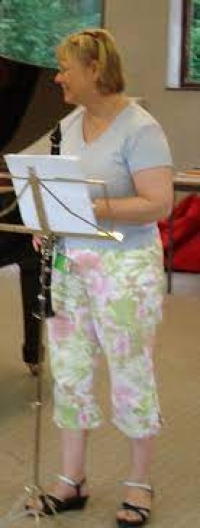
Jytte Jost (1947 - ). Denmark (living in Belgium , Genval). Registered before 2010. About the artist. I am danish and I started to play the piano at 7 years ...
Bach

Johann Sebastian Bach (31 March 1685 – 28 July 1750) was a German composer and organist whose sacred and secular works for choir, orchestra, and solo instruments drew together the strands of the Baroque period and brought it to its ultimate maturity. Although he introduced no new forms, he enriched the prevailing German style with a robust contrapuntal technique, an unrivalled control of harmonic and motivic organisation in composition for diverse musical forces, and the adaptation of rhythms and textures from abroad, particularly Italy and France.
Revered for their intellectual depth and technical and artistic beauty, Bach's works include the Brandenburg concertos; the Goldberg Variations; the English Suites, French Suites, Partitas, and Well-Tempered Clavier; the Mass in B Minor; the St. Matthew Passion; the St. John Passion; The Musical Offering; The Art of Fugue; the Sonatas and Partitas for violin solo; the Cello Suites; more than 200 surviving cantatas; and a similar number of organ works, including the celebrated Toccata and Fugue in D Minor.
While Bach's fame as an organist was great during his lifetime, he was not particularly well-known as a composer. His adherence to Baroque forms and contrapuntal style was considered "old-fashioned" by his contemporaries, especially late in his career when the musical fashion tended towards Rococo and later Classical styles. A revival of interest and performances of his music began early in the 19th century, and he is now widely considered to be one of the greatest composers in the Western tradition.
Revered for their intellectual depth and technical and artistic beauty, Bach's works include the Brandenburg concertos; the Goldberg Variations; the English Suites, French Suites, Partitas, and Well-Tempered Clavier; the Mass in B Minor; the St. Matthew Passion; the St. John Passion; The Musical Offering; The Art of Fugue; the Sonatas and Partitas for violin solo; the Cello Suites; more than 200 surviving cantatas; and a similar number of organ works, including the celebrated Toccata and Fugue in D Minor.
While Bach's fame as an organist was great during his lifetime, he was not particularly well-known as a composer. His adherence to Baroque forms and contrapuntal style was considered "old-fashioned" by his contemporaries, especially late in his career when the musical fashion tended towards Rococo and later Classical styles. A revival of interest and performances of his music began early in the 19th century, and he is now widely considered to be one of the greatest composers in the Western tradition.
Muse

Muse are a British rock band formed in Teignmouth, Devon, United Kingdom in 1994 under the alias of Rocket Baby Dolls. The band comprises Matthew Bellamy (vocals, guitar and piano), Christopher Wolstenholme (bass guitar and backing vocals) and Dominic Howard (drums and percussion). Muse's style can be considered as a mixture of many musical genres, most notably alternative rock, classical music and electronica. Muse are known best for their energetic and visually dazzling live performances and on June 16th & 17th, 2007 became the first band to sell out the newly built Wembley Stadium in London. Muse have released four studio albums with their first, Showbiz, released in 1999, followed by Origin of Symmetry in 2001 and Absolution in 2003. The most recent, Black Holes & Revelations (2006), was also the most critically acclaimed, garnering the band a Mercury Prize nomination and a third place finish in the NME Albums of the Year list for 2006. Muse have won various awards throughout their career including 5 MTV Europe Music Awards, 5 Q Awards, 4 NME Awards and 2 Brit awards.
Handel

George Frideric Handel (Friday, 23 February 1685 - Saturday, 14 April 1759) was a German-born Baroque composer who is famous for his operas, oratorios and concerti grossi. Born as Georg Friedrich Handel in Halle, he spent most of his adult life in England, becoming a subject of the British crown on 22 January 1727. His most famous works are Messiah, an oratorio set to texts from the King James Bible; Water Music; and Music for the Royal Fireworks. Strongly influenced by the techniques of the great composers of the Italian Baroque and the English composer Henry Purcell, his music was known to many significant composers who came after him, including Haydn, Mozart, and Beethoven.
Handel's compositions include 42 operas; 29 oratorios; more than 120 cantatas, trios and duets; numerous arias; chamber music; a large number of ecumenical pieces; odes and serenatas; and sixteen organ concerti. His most famous work, the Messiah oratorio with its "Hallelujah" chorus, is among the most popular works in choral music and has become a centerpiece of the Christmas season. Also popular are the Opus 3 and 6 Concerti Grossi, as well as "The Cuckoo and the Nightingale", in which birds are heard calling during passages played in different keys representing the vocal ranges of two birds. Also notable are his sixteen keyboard suites, especially The Harmonious Blacksmith.
Handel introduced various previously uncommon musical instruments in his works: the viola d'amore and violetta marina (Orlando), the lute (Ode for St. Cecilia's Day), three trombones (Saul), clarinets or small high cornets (Tamerlano), theorbo, French horn (Water Music), lyrichord, double bassoon, viola da gamba, bell chimes, positive organ, and harp (Giulio Cesare, Alexander's Feast).
Handel's compositions include 42 operas; 29 oratorios; more than 120 cantatas, trios and duets; numerous arias; chamber music; a large number of ecumenical pieces; odes and serenatas; and sixteen organ concerti. His most famous work, the Messiah oratorio with its "Hallelujah" chorus, is among the most popular works in choral music and has become a centerpiece of the Christmas season. Also popular are the Opus 3 and 6 Concerti Grossi, as well as "The Cuckoo and the Nightingale", in which birds are heard calling during passages played in different keys representing the vocal ranges of two birds. Also notable are his sixteen keyboard suites, especially The Harmonious Blacksmith.
Handel introduced various previously uncommon musical instruments in his works: the viola d'amore and violetta marina (Orlando), the lute (Ode for St. Cecilia's Day), three trombones (Saul), clarinets or small high cornets (Tamerlano), theorbo, French horn (Water Music), lyrichord, double bassoon, viola da gamba, bell chimes, positive organ, and harp (Giulio Cesare, Alexander's Feast).
Joe Hisaishi

Mamoru Fujisawa (藤澤 守 Fujisawa Mamoru?), known professionally as Joe Hisaishi (久石 譲 Hisaishi Jō?, born December 6, 1950), is a composer and director known for over 100 film scores and solo albums dating back to 1981.
While possessing a stylistically distinct sound, Hisaishi's music has been known to explore and incorporate different genres, including minimalist, experimental electronic, European classical, and Japanese classical. Lesser known are the other musical roles he plays; he is also a typesetter, author, arranger, and head of an orchestra.
He is best known for his work with animator Hayao Miyazaki, having composed scores for many of his films including Nausicaä of the Valley of the Wind (1984), My Neighbor Totoro (1988), Princess Mononoke (1997), Spirited Away (2001), Howl's Moving Castle (2004) and Ponyo (2008). He is also recognized for the soundtracks he has provided for filmmaker 'Beat' Takeshi Kitano, including Dolls (2002), Kikujiro (1999), Hana-bi (1997), Kids Return (1996), Sonatine (1993).
While possessing a stylistically distinct sound, Hisaishi's music has been known to explore and incorporate different genres, including minimalist, experimental electronic, European classical, and Japanese classical. Lesser known are the other musical roles he plays; he is also a typesetter, author, arranger, and head of an orchestra.
He is best known for his work with animator Hayao Miyazaki, having composed scores for many of his films including Nausicaä of the Valley of the Wind (1984), My Neighbor Totoro (1988), Princess Mononoke (1997), Spirited Away (2001), Howl's Moving Castle (2004) and Ponyo (2008). He is also recognized for the soundtracks he has provided for filmmaker 'Beat' Takeshi Kitano, including Dolls (2002), Kikujiro (1999), Hana-bi (1997), Kids Return (1996), Sonatine (1993).
H.Klose
Hyacinthe Eléonore Klosé (11 October 1808 – 29 August 1880) was a French clarinet player, professor at the Conservatoire de Paris, and composer.Klosé was born in Corfu (Greece). He was second clarinet at the Théâtre Italien to Frédéric Berr beginning in 1836, then to Iwan Müller following Berr's death in 1838, finally becoming solo clarinettist when Müller left in 1841.In the Paris Conservatory, Klosé had many notable pupils including:
Arashi

Arashi is a Japanese boy band consisting of five members formed under the Johnny & Associates talent agency. The members are Satoshi Ohno, Sho Sakurai, Masaki Aiba, Kazunari Ninomiya, and Jun Matsumoto. Arashi officially formed on September 15, 1999, in Honolulu, Hawaii, and made their debut CD on November 3, 1999.
Tom Molter
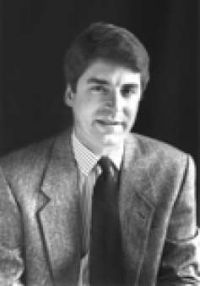
Tom Molter leads a very active life as a music educator, composer/arranger and performer. As a music educator he has taught at the ...
Leonardo De Lorenzo
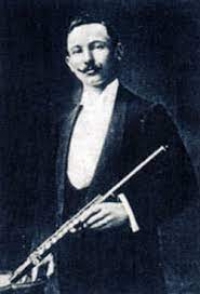
Leonardo De Lorenzo (August 29, 1875 – July 29, 1962) was an Italian virtuoso flutist and music educator.Born at Viggiano, in the province of Potenza, De Lorenzo started playing the flute at the age of 8 and went to Naples to attend the Music conservatory "San Pietro a Majella". At 16, he moved to the United States, working at a hotel in Cerulean, Kentucky, but in 1896 he returned to Italy for the military service in Alessandria, becoming a member of a military band directed by Giovanni Moranzoni.
Lunapop

Lùnapop was an Italian pop rock music group active between 1999 and 2001. Lùnapop released its lone full length Italian language album, ...Squérez?, in 1999. The album quickly became a commercial success, with the single "50 special", hitting the number one spot in the Italian charts in 1999, and ...Squérez?
Bond Quartet

Together Tania Davis (Violin), Eos Counsell (violin), Elspeth Hanson (viola) and Gay-Yee Westerhoff (cello) complete the line-up of BOND.
At its launch, BOND was hailed in the press as ‘the Spice Girls of Classical music’, and went onto turn the world of classical crossover music on its head, spawning many electric string groups inspired by its unique sound.
The members of BOND draw their inspiration from classical, latin, folk, jazz, rock, pop, electro, Indian and middle eastern styles. They have built a very active and loyal international fan base over the years and, since their debut, BOND have sold over 4 million albums worldwide, making BOND the best-selling string quartet of all time.
At its launch, BOND was hailed in the press as ‘the Spice Girls of Classical music’, and went onto turn the world of classical crossover music on its head, spawning many electric string groups inspired by its unique sound.
The members of BOND draw their inspiration from classical, latin, folk, jazz, rock, pop, electro, Indian and middle eastern styles. They have built a very active and loyal international fan base over the years and, since their debut, BOND have sold over 4 million albums worldwide, making BOND the best-selling string quartet of all time.
Duffy

Amy Anne Duffy (born 23 June 1984) , is a Welsh singer, songwriter and actress named after Shane Duffy.Her debut album, Rockferry, released in 2008, became the best-selling album in the United Kingdom that year and led to worldwide attention. It spawned the successful single "Mercy". In 2009, Duffy received the Grammy Award for Best Pop Vocal Album for Rockferry, one of three nominations, and won three out of four Brit Awards nominations, for British Breakthrough, Best British Female and Best British Album. In 2010, she made her acting debut in the film Patagonia and released her second studio album Endlessly to moderate success.
Joachim Andersen
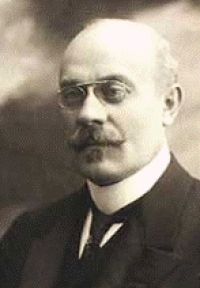
Carl Joachim Andersen (April 29, 1847 – May 7, 1909) was a Danish flutist, conductor and composer born in Copenhagen, son of the flutist Christian Joachim Andersen. Both as a virtuoso and as composer of flute music, he is considered one of the best of his time. He was a tough leader and teacher and demanded as such a lot from his orchestras but through that style he reached a high level.
Ilio Volante

Was born in Italy in 1964, he was still a teen ager when he started his music studies (saxophone) showing from the very beginning a particular predisposition towards the music composition and Jazz music. At the age of 19 he won the audition for the Italian National Army Band stationed in Rome. He served it for 10 years under the direction of Col. Marino BARTOLONI. After this, he played in the Grenadiers of Sardinia’s Band (Rome) and the Shape International Band (the official Nato Band) stationed in Mons (BELGIUM). In this last post, he covered for three years the 1st Tenor Saxophone slot helping the Director, MSg Allen WITTIG, in doing the original arrangements for the Big Band. http://www.iliovolante.com http://www.musicaperbanda.com
Nobuo Uematsu

Nobuo Uematsu (植松伸夫 Uematsu Nobuo?, born March 21, 1959) is a Japanese video game composer and musician, best known for scoring the majority of titles in the Final Fantasy series. He is regarded as one of the most famous and respected composers in the video game community. Uematsu is a self-taught musician; he began to play the piano at the age of eleven or twelve, with Elton John as his biggest influence.
Uematsu joined Square (later Square Enix) in 1985, where he met Final Fantasy creator Hironobu Sakaguchi. They have worked together on numerous titles, most notably the games in the Final Fantasy series. After nearly 20 years in the company, he left Square Enix in 2004 and founded his own company called Smile Please, as well as the music production company Dog Ear Records. He has since composed music as a freelancer for video games primarily developed by Square Enix and Sakaguchi's development studio Mistwalker.
A handful of soundtracks and arranged albums of Uematsu's game scores have been released. Pieces from his video game works have been performed in concerts worldwide, and numerous Final Fantasy concerts have also been held. He has worked with Grammy Award-winning conductor Arnie Roth on several of these concerts. In 2002, he formed a rock band with colleagues Kenichiro Fukui and Tsuyoshi Sekito called The Black Mages, in which Uematsu plays the keyboard. The band plays arranged rock versions of Uematsu's Final Fantasy compositions.
Uematsu joined Square (later Square Enix) in 1985, where he met Final Fantasy creator Hironobu Sakaguchi. They have worked together on numerous titles, most notably the games in the Final Fantasy series. After nearly 20 years in the company, he left Square Enix in 2004 and founded his own company called Smile Please, as well as the music production company Dog Ear Records. He has since composed music as a freelancer for video games primarily developed by Square Enix and Sakaguchi's development studio Mistwalker.
A handful of soundtracks and arranged albums of Uematsu's game scores have been released. Pieces from his video game works have been performed in concerts worldwide, and numerous Final Fantasy concerts have also been held. He has worked with Grammy Award-winning conductor Arnie Roth on several of these concerts. In 2002, he formed a rock band with colleagues Kenichiro Fukui and Tsuyoshi Sekito called The Black Mages, in which Uematsu plays the keyboard. The band plays arranged rock versions of Uematsu's Final Fantasy compositions.
Cuong Vu
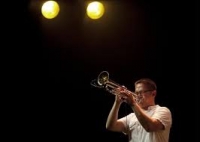
Cuong Vu is a Vietnamese-American jazz trumpeter. In addition to his own work as a bandleader, Vu was a member of the Pat Metheny Group.
Philip Carver
Professional musician (composer, arranger, pianist, singer) with expert knowledge and experience in music engraving and transcription, using Finale musical ...
Vincent Youmans
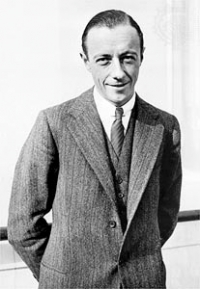
Vincent Millie Youmans (September 27, 1898 – April 5, 1946) was an American Broadway composer and Broadway producer.
A leading Broadway composer of his day, Youmans collaborated with virtually all the greatest lyricists on Broadway: Ira Gershwin, Otto Harbach, Oscar Hammerstein II, Irving Caesar, Anne Caldwell, Leo Robin, Howard Dietz, Clifford Grey, Billy Rose, Edward Eliscu, Edward Heyman, Harold Adamson, Buddy De Sylva and Gus Kahn. Youmans' early songs are remarkable for their economy of melodic material: two-, three- or four-note phrases are constantly repeated and varied by subtle harmonic or rhythmic changes. In later years, however, apparently influenced by Jerome Kern, he turned to longer musical sentences and more free-flowing melodic lines. Youmans published fewer than 100 songs, but 18 of these were considered standards by ASCAP, a remarkably high percentage.
A leading Broadway composer of his day, Youmans collaborated with virtually all the greatest lyricists on Broadway: Ira Gershwin, Otto Harbach, Oscar Hammerstein II, Irving Caesar, Anne Caldwell, Leo Robin, Howard Dietz, Clifford Grey, Billy Rose, Edward Eliscu, Edward Heyman, Harold Adamson, Buddy De Sylva and Gus Kahn. Youmans' early songs are remarkable for their economy of melodic material: two-, three- or four-note phrases are constantly repeated and varied by subtle harmonic or rhythmic changes. In later years, however, apparently influenced by Jerome Kern, he turned to longer musical sentences and more free-flowing melodic lines. Youmans published fewer than 100 songs, but 18 of these were considered standards by ASCAP, a remarkably high percentage.
Fiorelli
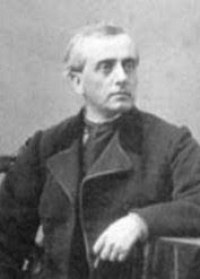
Giuseppe Fiorelli Born: May 5, 1904 Date and place of death: 6 August 1960, Rome, Italy.
J. S. Bach
Johann Sebastian Bach (21 March 1685, O.S.31 March 1685, N.S. – 28 July 1750, N.S.) was a German composer, organist, harpsichordist, violist, and violinist whose sacred and secular works for choir, orchestra, and solo instruments drew together the strands of the Baroque period and brought it to its ultimate maturity. Although he did not introduce new forms, he enriched the prevailing German style with a robust contrapuntal technique, an unrivalled control of harmonic and motivic organisation, and the adaptation of rhythms, forms and textures from abroad, particularly from Italy and France.
Revered for their intellectual depth, technical command and artistic beauty, Bach's works include the Brandenburg Concertos, the Goldberg Variations, the Partitas, The Well-Tempered Clavier, the Mass in B minor, the St Matthew Passion, the St John Passion, the Magnificat, A Musical Offering, The Art of Fugue, the English and French Suites, the Sonatas and Partitas for solo violin, the Cello Suites, more than 200 surviving cantatas, and a similar number of organ works, including the famous Toccata and Fugue in D minor and Passacaglia and Fugue in C minor, as well as the Great Eighteen Chorale Preludes and Organ Mass.
Bach's abilities as an organist were highly respected throughout Europe during his lifetime, although he was not widely recognised as a great composer until a revival of interest and performances of his music in the first half of the 19th century. He is now generally regarded as one of the main composers of the Baroque style, and as one of the greatest composers of all time.
Revered for their intellectual depth, technical command and artistic beauty, Bach's works include the Brandenburg Concertos, the Goldberg Variations, the Partitas, The Well-Tempered Clavier, the Mass in B minor, the St Matthew Passion, the St John Passion, the Magnificat, A Musical Offering, The Art of Fugue, the English and French Suites, the Sonatas and Partitas for solo violin, the Cello Suites, more than 200 surviving cantatas, and a similar number of organ works, including the famous Toccata and Fugue in D minor and Passacaglia and Fugue in C minor, as well as the Great Eighteen Chorale Preludes and Organ Mass.
Bach's abilities as an organist were highly respected throughout Europe during his lifetime, although he was not widely recognised as a great composer until a revival of interest and performances of his music in the first half of the 19th century. He is now generally regarded as one of the main composers of the Baroque style, and as one of the greatest composers of all time.
Eduardo Di Capua
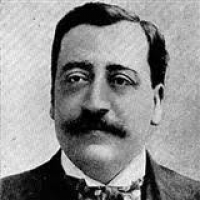
DescriptionEduardo Di Capua was a Neapolitan composer, singer and songwriter. Date of birth: March 12, 1865, Naples, Italy Date and place of death: 3 October 1917, Milan, Italy Education: Music conservatories of Naples Genre: Classical music Albums: O Sole Mio
Jazz Standard
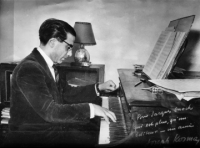
Autumn Leaves" is a popular song and jazz standard composed by Joseph Kosma with original lyrics by Jacques Prévert in French, and later by Johnny Mercer in English. An instrumental version by pianist Roger Williams was a #1 best-seller in the USA Billboard charts of 1955.
Felipe Rose

Felipe Rose is an American musician who was an original member of the disco group the Village People. While in the group, he performed as an "Indian" character - usually wearing a warbonnet and loincloth - from 1977 until 2017, when the name of the group was turned over to original lead singer Victor Willis.
Jadunath Bhattacharya

Jadu Bhatta is a genius of Indian Classical Music (Dhrupad Music,Bishnupur Gharana). Jadu Bhatta was born in the year of 1840. He has spent his early days at ..
The Saint
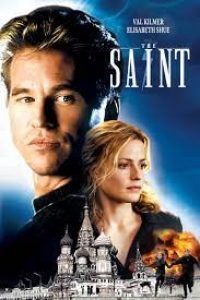
When a master of disguise is hired to steal the secrets of cold fusion from scientist Emma, he has little idea he might fall in love with his victim - or be double-crossed by his snakelike employer.
Sarah Brightman

Sarah Brightman (born 14 August 1960) is a British classical crossover soprano, singer, songwriter, actress, dancer and musician.Brightman began her career as a member of the dance troupe Hot Gossip and released several disco singles as a solo performer. In 1981, she made her West End musical theatre debut in Cats and met composer Andrew Lloyd Webber, whom she later married. She went on to star in several West End and Broadway musicals, including The Phantom of the Opera, where she originated the role of Christine Daaé. Her original London cast album of Phantom was released in CD format in 1987 and sold 40 million copies worldwide, making it the biggest-selling cast album ever.
Soft Cell

Soft Cell are an English synthpop duo who came to prominence in the early 1980s. They consist of vocalist Marc Almond and David Ball on synthesizers. The duo is known for their 1981 worldwide smash - a significantly reworked cover version of Gloria Jones' "Tainted Love". While this song was Soft Cell's only Top 40 success in the United States, they had 10 UK Top 40 hits, including "Bedsitter" (#4), "Say Hello, Wave Goodbye" (#3), "Torch" (#2), and "What!" (#3). In addition, the band also had four UK top 20 albums between 1981 and 1984. Soft Cell's additional UK hit singles were "Where The Heart Is" (#21), "Numbers" (#25), "Down In The Subway" (#24), "Soul Inside" (#16) and "The Night" (#39).
The Secret Garden

The Secret Garden is a musical based on the 1909 novel of the same name by Frances Hodgson Burnett. The musical's book and lyrics are by Marsha Norman, with music by Lucy Simon. It premiered on Broadway at the St. James Theatre on 25 April 1991 and closed on 3 January 1993 after 709 performances.
The musical, set in 1906, tells of a young English girl, Mary, who is forced to move to England from colonial India when her parents die in a cholera outbreak. There she lives with her emotionally stunted Uncle Archibald and her invalid cousin. Discovering a hidden and neglected garden, and bravely overcoming dark forces, she and a young gardener bring it back to life at the same time as she brings new life to her cousin and uncle.
The Secret Garden garnered the 1991 Tony Awards for Best Book of a Musical, Best Featured Actress in a Musical (Daisy Eagan), and Best Scenic Design (Heidi Landesman). The set resembled an enormous Victorian toy theatre with pop-out figures, large paper dolls, and Joseph Cornell-like collage elements.
The musical, set in 1906, tells of a young English girl, Mary, who is forced to move to England from colonial India when her parents die in a cholera outbreak. There she lives with her emotionally stunted Uncle Archibald and her invalid cousin. Discovering a hidden and neglected garden, and bravely overcoming dark forces, she and a young gardener bring it back to life at the same time as she brings new life to her cousin and uncle.
The Secret Garden garnered the 1991 Tony Awards for Best Book of a Musical, Best Featured Actress in a Musical (Daisy Eagan), and Best Scenic Design (Heidi Landesman). The set resembled an enormous Victorian toy theatre with pop-out figures, large paper dolls, and Joseph Cornell-like collage elements.
Guns N' Roses

Guns N 'Roses is an American rock band founded in 1985 in Los Angeles, California. Axl Rose, Slash, Izzy Stradlin, Duff McKagan, and Steven , Genres: Hard rock, Heavy metal, Blues rock, Glam rock They started their music life in Los Angeles, California, USA (1985) Albums: Appetite for Destruction, Use Your Illusion I
Franz Schubert

Franz Peter Schubert (German pronunciation: ; January 31, 1797 – November 19, 1828) was an Austrian composer. He wrote some 600 Lieder, nine symphonies (including the famous "Unfinished Symphony"), liturgical music, operas, some incidental music, and a large body of chamber and solo piano music. He is particularly noted for his original melodic and harmonic writing.
Schubert was born into a musical family, and received formal musical training through much of his childhood. While Schubert had a close circle of friends and associates who admired his work (amongst them the prominent singer Johann Michael Vogl), wide appreciation of his music during his lifetime was limited at best. He was never able to secure adequate permanent employment, and for most of his career he relied on the support of friends and family. He made some money from published works, and occasionally gave private musical instruction. In the last year of his life he began to receive wider acclaim. He died at the age of 31 of "typhoid fever", a diagnosis which was vague at the time; several scholars suspect the real illness was tertiary syphilis.
Interest in Schubert's work increased dramatically in the decades following his death. Composers like Franz Liszt, Robert Schumann and Felix Mendelssohn discovered, collected, and championed his works in the 19th century, as did musicologist Sir George Grove. Franz Schubert is now widely considered to be one of the greatest composers in the Western tradition.
Schubert was born into a musical family, and received formal musical training through much of his childhood. While Schubert had a close circle of friends and associates who admired his work (amongst them the prominent singer Johann Michael Vogl), wide appreciation of his music during his lifetime was limited at best. He was never able to secure adequate permanent employment, and for most of his career he relied on the support of friends and family. He made some money from published works, and occasionally gave private musical instruction. In the last year of his life he began to receive wider acclaim. He died at the age of 31 of "typhoid fever", a diagnosis which was vague at the time; several scholars suspect the real illness was tertiary syphilis.
Interest in Schubert's work increased dramatically in the decades following his death. Composers like Franz Liszt, Robert Schumann and Felix Mendelssohn discovered, collected, and championed his works in the 19th century, as did musicologist Sir George Grove. Franz Schubert is now widely considered to be one of the greatest composers in the Western tradition.
B2ST

Beast Is the B2ST (Beast Is the Best) is the debut extended play by South Korean boy band Beast. It was released by Cube Entertainment on October 14, 2009 and contains five songs, including the singles "Bad Girl" and "Mystery". The album was a commercial success, selling over 40,000 copies.
Freddie King

Freddie King was an American blues guitarist, singer and songwriter. He is considered one of the "Three Kings of the Blues Guitar". Mostly known for his soulful and powerful voice and distinctive guitar playing, King had a major influence on electric blues music and on many later blues guitarists.
Music theory

Music theory is the study of the practices and possibilities of music. The Oxford Companion to Music describes three interrelated uses of the term "music theory"
Chopin

Frédéric Chopin (1 March 1810 – 17 October 1849) was a Polish composer and virtuoso pianist of the Romantic period. He is widely regarded as the greatest Polish composer, and ranks as one of music's greatest tone poets.
He was born in the village of Żelazowa Wola, in the Duchy of Warsaw, to a Polish mother and French-expatriate father, and in his early life was regarded as a child-prodigy pianist. In November 1830, at the age of 20, Chopin went abroad; following the suppression of the Polish November Uprising of 1830–31, he became one of many expatriates of the Polish "Great Emigration."
In Paris, he made a comfortable living as a composer and piano teacher, while giving few public performances. A Polish patriot,
Chopin's extant compositions were written primarily for the piano as a solo instrument. Though technically demanding, Chopin's style emphasizes nuance and expressive depth rather than virtuosity. Chopin invented musical forms such as the ballade and was responsible for major innovations in forms such as the piano sonata, waltz, nocturne, étude, impromptu and prelude. His works are mainstays of Romanticism in 19th-century classical music.
He was born in the village of Żelazowa Wola, in the Duchy of Warsaw, to a Polish mother and French-expatriate father, and in his early life was regarded as a child-prodigy pianist. In November 1830, at the age of 20, Chopin went abroad; following the suppression of the Polish November Uprising of 1830–31, he became one of many expatriates of the Polish "Great Emigration."
In Paris, he made a comfortable living as a composer and piano teacher, while giving few public performances. A Polish patriot,
Chopin's extant compositions were written primarily for the piano as a solo instrument. Though technically demanding, Chopin's style emphasizes nuance and expressive depth rather than virtuosity. Chopin invented musical forms such as the ballade and was responsible for major innovations in forms such as the piano sonata, waltz, nocturne, étude, impromptu and prelude. His works are mainstays of Romanticism in 19th-century classical music.
The Meters

The Meters are an American funk band formed in 1965 in New Orleans by Zigaboo Modeliste (drums), George Porter Jr. (bass), Leo Nocentelli (guitar) and Art Neville (keyboards). The band performed and recorded their own music from the late 1960s until 1977 and played an influential role as backing musicians for other artists, including Lee Dorsey, Robert Palmer, Dr. John, and Allen Toussaint. Their original songs "Cissy Strut" and "Look-Ka Py Py" are considered funk classics.
Paul Taffanel
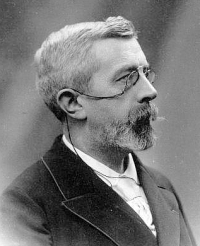
Claude-Paul Taffanel (16 September 1844 – 22 November 1908) was a French flautist, conductor and instructor, regarded as the founder of the French Flute School that dominated much of flute composition and performance during the mid-20th century.Born in Bordeaux, Taffanel received his first lessons on the flute from his father at the age of nine. After giving his first concert at the age of ten, he studied with Vincent Dorus at the Paris Conservatoire. Once he graduated in 1860, he won his first of several awards for flute performance at age sixteen. Taffanel built a substantial career as both soloist and orchestral player over 30 years, becoming known as the foremost flautist of his time and reestablishing the instrument in the mainstream of music.
Muzio Clementi
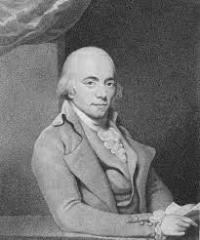
Muzio Filippo Vincenzo Francesco Saverio Clementi (23 January 1752 – 10 March 1832) was an Italian composer, virtuoso pianist, pedagogue, conductor, music publisher, editor, and piano manufacturer, who was mostly active in England.
Encouraged to study music by his father, he was sponsored as a young composer by Sir Peter Beckford who took him to England to advance his studies. Later, he toured Europe numerous times from his long-standing base in London. It was on one of these occasions, in 1781, that he engaged in a piano competition with Wolfgang Amadeus Mozart.
Encouraged to study music by his father, he was sponsored as a young composer by Sir Peter Beckford who took him to England to advance his studies. Later, he toured Europe numerous times from his long-standing base in London. It was on one of these occasions, in 1781, that he engaged in a piano competition with Wolfgang Amadeus Mozart.
Julius Fučík
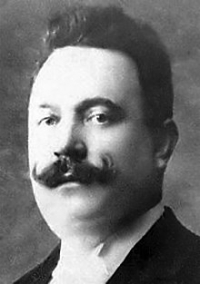
Julius Ernest Wilhelm Fučík (Czech: ; 18 July 1872 – 25 September 1916) was a Czech composer and conductor of military bands. He became a prolific composer, with over 400 marches, polkas, and waltzes to his name. As most of his work were for military bands, he is sometimes known as the "Bohemian Sousa".Today his marches are still played as patriotic music in the Czech Republic. His worldwide reputation rests primarily on two works: "The Florentiner March", popular throughout much of Europe, and the "Entrance of the Gladiators" (Vjezd gladiátorů), which is widely recognized, often under the title "Thunder and Blazes", as one of the most popular theme tunes for circus clowns.
Vinicius de Moraes
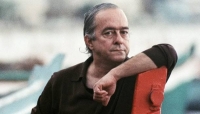
Marcus Vinicius da Cruz e Mello Moraes, also known as Vinicius de Moraes and nicknamed O Poetinha, was a Brazilian poet, lyricist, essayist, and playwright. He served as a diplomat, composed bossa nova music, and recorded several albums.
József Sára
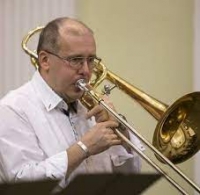
József Sára University of Debrecen Faculty of Music after that. I taught 25 years in a music school.
Bob Crewe
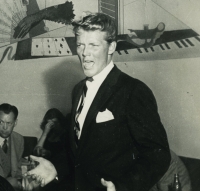
Robert Stanley Crewe was an American songwriter, dancer, singer, manager, and record producer. He was known for producing, and co-writing with Bob Gaudio, a string of Top 10 singles for the Four Seasons.
Henri Dutilleux
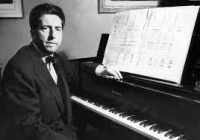
Henri Dutilleux (French: ; 22 January 1916 – 22 May 2013) was a French composer active mainly in the second half of the 20th century. His small body of published work, which garnered international acclaim, followed in the tradition of Maurice Ravel, Claude Debussy, Albert Roussel and Olivier Messiaen, but in an idiosyncratic style.Some of his notable compositions include a piano sonata, two symphonies, the cello concerto Tout un monde lointain… (A whole distant world), the violin concerto L'arbre des songes (The tree of dreams), the string quartet Ainsi la nuit (Thus the night) and a sonatine for flute and piano. Some of these are regarded as masterpieces of 20th-century classical music.
 Sheet Music Network is a site for those who wants to access popular sheet music easily,
letting them download the sheet music for free for trial purposes.
It's completely free to download and try the listed sheet music, but you have to delete the files after 24 hours of trial.
Don't forget, if you like the piece of music you have just learned playing,
treat the artist with respect, and go buy the original sheet music.
Sheet Music Network is a site for those who wants to access popular sheet music easily,
letting them download the sheet music for free for trial purposes.
It's completely free to download and try the listed sheet music, but you have to delete the files after 24 hours of trial.
Don't forget, if you like the piece of music you have just learned playing,
treat the artist with respect, and go buy the original sheet music.
